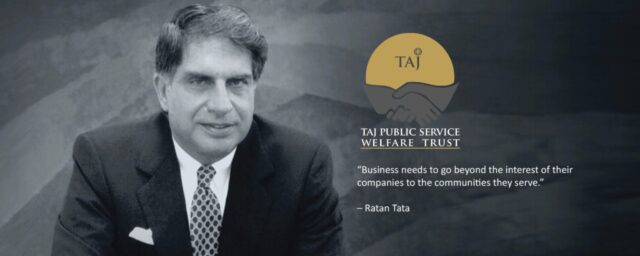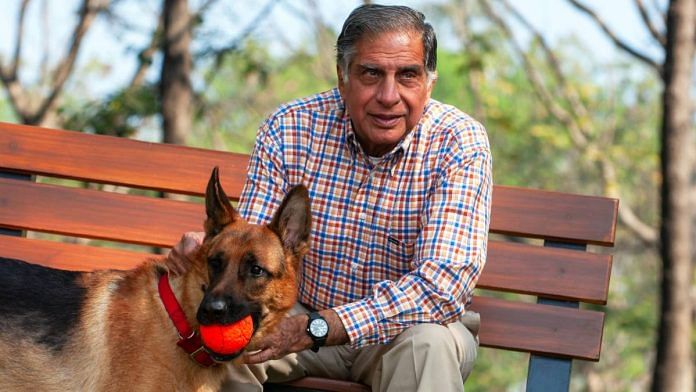The Values That Shaped an Empire
What more can be said about Padma Vibhushan Ratan Tata that isn’t already well-known? To delve deeply into his leadership would be redundant, as much has been written and discussed. His philanthropic contributions? While vast, these are deeply embedded within the cultural fabric of Tata Sons. Perhaps, I could write about his unique connection with Shantanu Naidu, who affectionately calls him the “Millennial Dumbledore.” Yet, to me, Ratan Tata was never a ‘Dumbledore.’

To me, he represented a business leader as real and grounded as my grandfather, as inspiring as my mentor, and as aspirational as the kind of leader I strive to become. His quiet confidence, his simplicity in dress—a basic shirt and blazer—and his profound business acumen created a legacy of excellence. He was a guiding light, much like the great leaders and nationalists of our country, shining brightly in both business and humanitarian endeavors.
I recall attending a session at ‘Tata Literature Live!’ years ago, where a book on the 26/11 Taj Hotel attack was being discussed. While the tragedy left a deep scar on the nation, what resonated the most was the culture ingrained in the employees of the Taj Group—a culture so profound that it has since become a case study at Harvard.
In today’s fast-paced world, where many are focused on creating startups, scaling quickly, and chasing IPOs, we often lose sight of the fundamentals of building resilient businesses. But Ratan Tata’s leadership and the values of his organization reflect something far deeper. During the 26/11 attacks, when employees of the Taj Group put their lives on the line to protect guests, it raised an important question: What drives such loyalty? What values made them so secure in the belief that their families would be taken care of, even in their absence? The Tata Group upheld that trust, ensuring the families were compensated beyond what those employees would have earned in a lifetime.
Ratan Tata himself stood vigil outside the Taj Hotel for three days during the terrorist attack. There were 300 guests inside, and the restaurants were operating at full capacity when the nightmare began. Throughout the ordeal, which claimed the lives of 33 people—including 11 Taj employees—he remained steadfast in his support. He not only compensated the families but also ensured the hotel’s swift reopening, a tribute to the resilience of his employees and the spirit of Mumbai.
This level of commitment—both to his employees and to the values he upheld—exemplifies the belief that “the show must go on,” even in the face of adversity. Much like the warrior Arjuna, who fought with renewed vigor after losing his son in the Mahabharata, Ratan Tata’s resilience in the business world was unshakable.

Despite his unrelenting dedication to business, Ratan Tata was a man of deep compassion. His loyalty extended not only to his employees but to his beloved dogs, Tango and Tito. In a notable instance, he chose to miss receiving a Lifetime Achievement Award from Prince Charles when one of his dogs fell ill, a decision that echoes the mythological Yudhishthira’s devotion to the dog who walked up the mountain with him to Heaven.
With the passing of Dr. A.P.J. Abdul Kalam, India felt orphaned, and a similar sentiment resonates with the loss of Ratan Tata. We have been privileged to witness a time when a visionary leader reigned with unparalleled humility, compassion, and determination.

Fantastic tribute to Ratan Tata
A Fantastic write-up of my mentor “Tiger” as we addressed him
#villakiraani
Dollyy Israani
THY name “The Tata”. 🙏🏻🙏🏻🙏🏻
Values to be emulated by every Businessman.